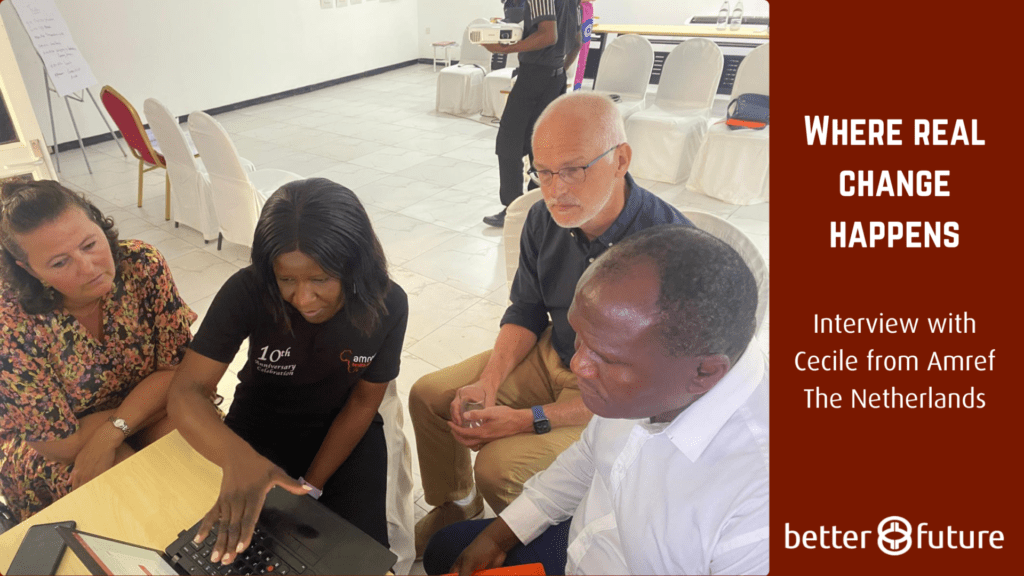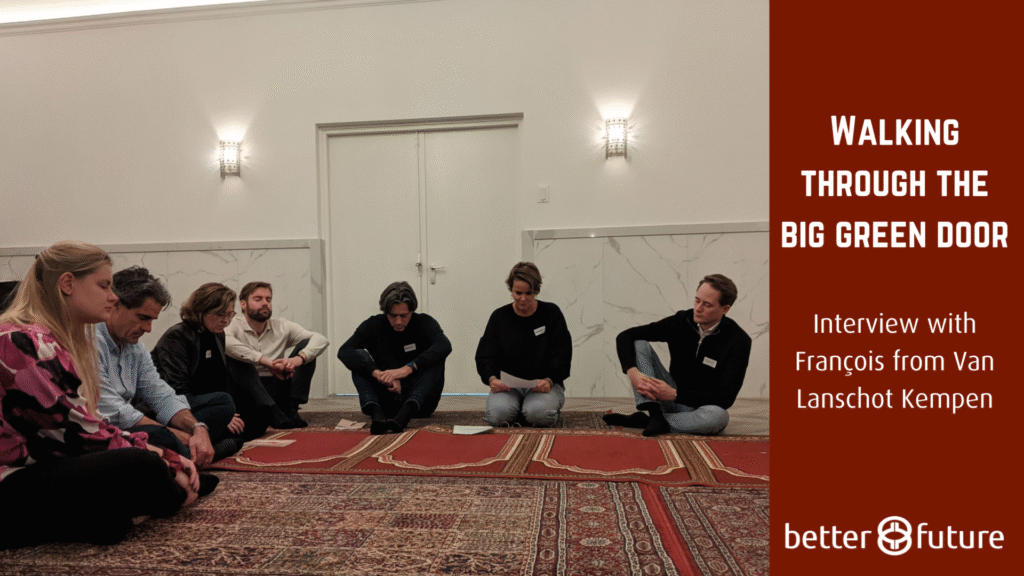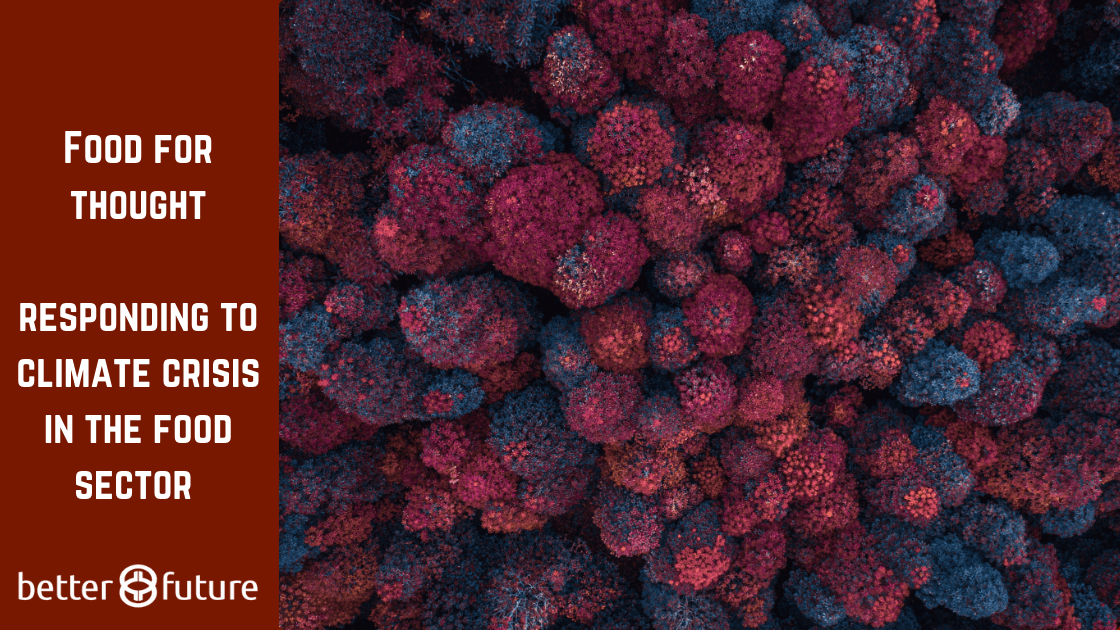
In addressing climate change crisis, nobody can do this alone. How can we do it together? Strengthening businesses, transforming industries and mobilize people in making that happen? Urgency is a crucial lever for change. In the food chain, urgency is foremostly tangible for farmers, where other players in the value chain don’t feel it on a daily basis. So now what? Read the story below.
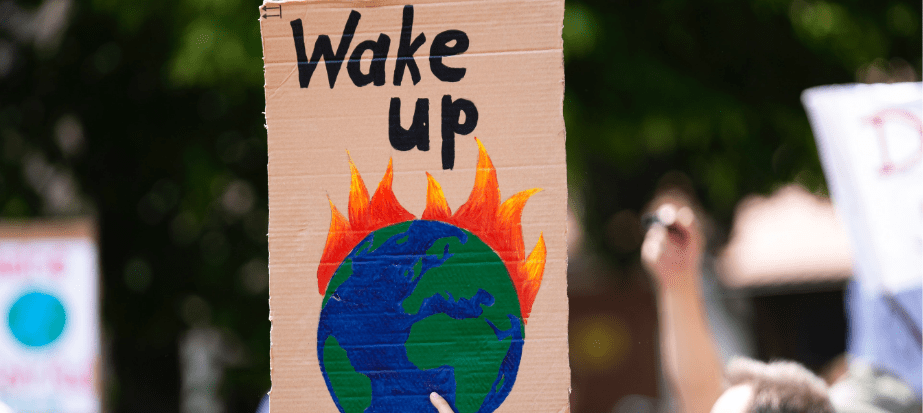
At Better Future we have the privilege of working alongside companies in some of their most pressing challenges. On the topic of sustainability, in particular climate change, we see a wide range in the response and actions from companies. Some smaller companies think that they’re just small fish in the pond, or that they can’t focus on growth and sustainability at the same time. Larger companies maybe think that they’re too big to fail, or too big to change. But the fact of the matter is that nobody should or can do this alone. So, the real challenge is: how can we do it together, strengthening businesses, transforming industries, and caring for the future we build for the generations that are looking up to us now?
Urgency seems to be a big piece of the puzzle. At so many points in history, we see the most inspiring collaborations happen when there’s a joint sense of urgency. With climate change, unfortunately this urgency is felt very unequally for the moment. Many companies don’t feel impacted by it beyond the fear of upcoming legislation. While others are experiencing it as a very present and pressing threat. In The Netherlands, for instance, some industries that rely on raw materials from agriculture are experiencing unprecedent shortages due to unstable climate. And while draught and flood periods have always been a reality, climate change is undoubtedly escalating these phenomena.
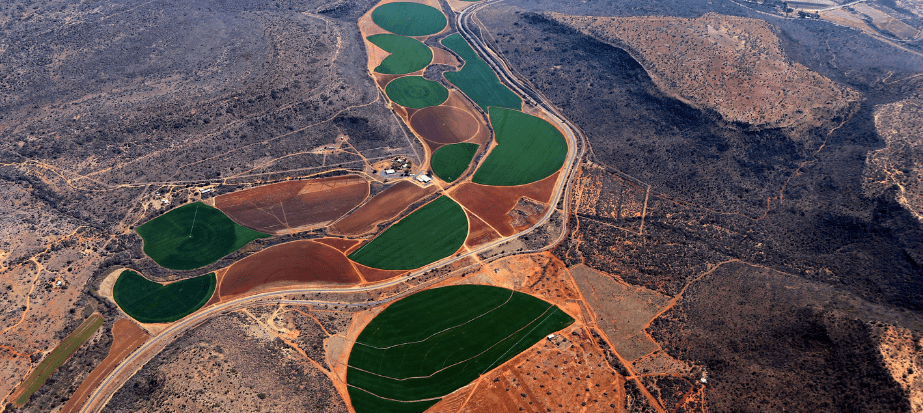
Recently, we ran leadership and strategy session with one of our clients in the food sector that are currently experiencing the real effects of climate instability, caught between supporting their suppliers (mostly local farmers) and their clients (worldwide). The impact is felt much beyond the bottom line and creates pressure within the organization. It gives rise to individual fears and assumptions, reactive leadership, and diminished trust and collaboration between departments working in silos. It can also become a crisis of direction. Short-term actions and long-term strategy are both needed. How to prioritize – especially when it is precisely short-term thinking that has created the climate crisis?
It can feel paralyzing and hopeless. But we – and luckily our client too – prefer to turn it into an opportunity instead. Because when urgency is used with purpose, it can move mountains! We focus on the opportunity to bring people in the company together for real, transformative dialogue. To understand each other’s perspectives, build collaboration, and regenerate a path forward that takes everyone along. An opportunity to reflect on what is needed from all leaders across the organization and put in practice today what we thought could always wait another day. As a result, fear is turned into hope, because at the end of the day, not only we cannot do it alone – we also don’t want to. Humans are hard-wired to desire connection and mutual-learning, and when we leverage that, we accomplish great things.
Zooming out, the same is true for the dynamics existing within value-chains and whole industries. Our client cannot control the climate crisis that is at their doorstep. For them, it’s not just about complying with legislation or strategizing for a distant future. It’s happening now. At the same time, other companies in similar or adjacent industries are not feeling it – yet. They don’t feel the urgency, so sustainability actions remain low on the priority list, dissociated from business decisions. An annoying topic, a nice to have, or an experiment here and there.

Luckily for our client, they are a large and proud leader in sustainability in their industry, living by this mission every day. They have many of the organizational tools and processes in place already to accelerate the innovations that need to happen for the success of their business. But how many companies can really say that?
So, our call to action is: Take sustainability as an opportunity to innovate on organizational structures and internal processes, align vision and priorities, mobilize your leadership for challenges and changes, and improve your products and services. Your business and the world will be better for it.
Our second call to action is: let’s bring companies together to learn, collaborate, and innovate, uniting business health with sustainability once and for all. Learn from and support others that are already experiencing the effects of climate change on their businesses. There are enough challenges ahead, and to go as far as we need to go, we must go together, and we must go now.

